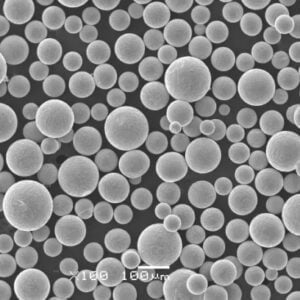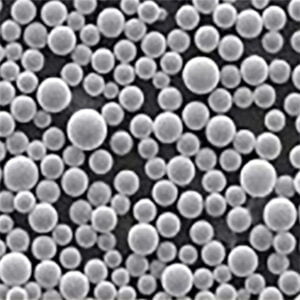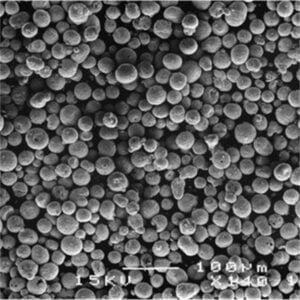Titanium flash powder is a pyrotechnic powder made from fine titanium metal and an oxidizer. When ignited, it produces a bright flash of light and heat. This article provides an in-depth look at titanium flash powder, including its composition, properties, uses, specifications, and more.
Composition of Titanium Flash Powder
Titanium flash powder consists of two main components:
Table 1: Main Components of Titanium Flash Powder
| Component | Details | Role |
|---|---|---|
| Fine titanium metal | Particle size 10 μm or less | Fuel that burns when ignited |
| Oxidizer | Typically potassium perchlorate | Provides oxygen to allow the titanium to burn quickly |
The extremely fine particle size of the titanium powder allows it to burn very rapidly and completely once ignited. This results in the bright, hot flash.
By weight, titanium flash powder typically contains:
- 70-90% fine titanium metal
- 10-30% potassium perchlorate
Other metal fuels can also be used instead of or in addition to the titanium metal, such as magnesium or aluminum. The ratio of fuel to oxidizer can be adjusted to control the intensity and duration of the flash.

Properties of Titanium Flash Powder
Titanium flash powder possesses special properties that make it useful for pyrotechnic applications:
Table 2: Key Properties of Titanium Flash Powder
| Property | Details |
|---|---|
| Burn rate | Up to 3000 m/s |
| Flash intensity | Very bright – higher than magnesium |
| Color temperature | Over 10,000 K |
| Flame temperature | 3,000-4,000°C |
| Smoke production | Very low |
The extremely rapid burn rate and high temperature of titanium flash powder is what produces the brilliant flash. It exceeds the performance of other common pyrotechnic metals like magnesium and aluminum.
Yet titanium flash powder generates very little smoke compared to other pyrotechnic compositions. This combination of intense flash and low smoke is highly desirable for applications like flash photography.
Manufacturing Process
Titanium flash powder is manufactured in a batch process using the following steps:
Table 3: Titanium Flash Powder Manufacturing Process
| Step | Description |
|---|---|
| 1. Blending | The titanium and oxidizer powders are thoroughly blended to produce a homogeneous mixture. |
| 2. Compaction | The powder blend is compressed into cakes or granules under high pressure. This minimizes air pockets. |
| 3. Break down | Cakes or granules are broken down and sieved to obtain uniform small particles optimized for rapid burning. |
| 4. Mixing | Final mixing step to ensure even distribution of components. Resulting powder has particle size ~10 μm or less. |
| 5. Packaging | Powder is packaged into moisture-proof containers to prevent premature ignition during storage and transport. |
Strict controls are maintained in all stages of manufacturing to achieve powder uniformity and prevent contamination. This is critical for the functional performance and safety of titanium flash powder.
Hazards and Safe Handling
As a pyrotechnic powder, titanium flash powder poses certain hazards if not handled properly:
Table 4: Titanium Flash Powder Hazards and Safe Handling
| Hazard | Mitigation Method |
|---|---|
| Fire and explosion | Store in cool, dry place away from ignition sources; ground equipment; isolate from oxidizers. |
| Skin and eye burns | Wear protective gear; avoid contact with exposed skin and eyes. |
| Inhalation | Use respiratory protection; avoid breathing dust. |
Titanium powder is highly flammable and titanium flash powder should be treated with extreme caution at all times. Make sure there are no possible ignition sources nearby when handling the powder. Avoid generating dust clouds which could explode.
Work areas used for mixing, weighing, or otherwise handling titanium flash powder should have appropriate engineering controls, protective equipment, and protocol for fire and explosion prevention. Personnel require specialized training in pyrotechnic safety procedures.
Applications and Uses
The intense flash produced by titanium flash powder upon ignition makes it very useful for the following applications:
Table 5: Applications and Uses of Titanium Flash Powder
| Application | Uses |
|---|---|
| Flash photography | Provides brief, intense light to illuminate photographs. |
| Fireworks | Creates bright, crackling bursts of light with “star” effects. |
| Simulators and signals | Generates loud noises and extremely bright flashes providing visible and audible effects. |
| Explosives testing | Used to evaluate optical sensors; tests system resilience against bright light effects. |
Specific pyrotechnic devices and products that use titanium flash powder include:
- Photographic flash cartridges – Provide portable lighting for cameras before electronic flashes were available. Synchronize with shutter timing.
- Flash pots – Thrown by magicians, performers, or wrestlers to produce loud reports with bright flashes for dramatic effects. May include spark-producing agents.
- Flashbang grenades – Used by police/military units to temporarily blind and deafen targets with intense flash and sound burst. Allows safest incapacitation.
- Firecrackers – Inclusion of titanium flash powder can significantly increase excitement factor for these exploding novelty items with loud noises and bursts of light.
Factors driving demand growth for titanium flash powder include photography market expansion, growth of “premium” fireworks segment, wider adoption of flashbangs for building clearing/hostage rescue, greater spending on police/military tactical equipment globally post COVID-19, and continuing cultural importance of firecrackers in major Asian countries.
Specifications and Standards
Pyrotechnic titanium flash powder for commercial use must meet regulatory standards regarding composition, particle size, storage/transport requirements, labeling, and more.
Table 6: Specifications and Standards for Titanium Flash Powder
| Parameter | Specification | Standard |
|---|---|---|
| Titanium content | ≥ 70% | APA Standard 87-1 |
| Oxidizer content | 10-30% | APA Standard 87-1 |
| Particle size | < 10 μm | MIL-DTL-382 |
| Maximum moisture | 0.15% | SAE AS1062D |
| Storage temp. | <38°C | ASTM D3994-17 |
| Shelf life | Up to 10 years | – |
Compliance certification with applicable APA, ASTM, SAE, CPSC, DOT, or other standards is normally required. Usage and possession may require appropriate licenses and permits in many jurisdictions. Restrictions often apply on retail sales and consumer fireworks applications.
Cost Analysis
Titanium metal prices have been volatile historically and this drives large fluctuations in flash powder costs. Currently prices range from:
Table 7: Titanium Flash Powder Price Ranges
| Grade | Price per kg |
|---|---|
| Lower grade | $100 – $250 |
| Military grade | $250 – $500 |
| Space-qualified | $500 – $1,000+ |
Pricing depends heavily on:
- Purity level
- Quality controls in manufacturing
- R&D/testing data provided
- Compliance certification status
- Purchase volume
- Application safety level
Military and aerospace users normally pay large premiums to obtain meticulously characterized flash powder meeting stringent specifications.
Top global suppliers include Hale Color, Comet Star, Pyro Powder, and Hanley Industries. Distributors normally focus on particular geographic regions.
Comparative Analysis
Table 8: Comparison of Titanium Flash Powder with Alternatives
| Parameter | Magnesium Powder | Aluminum Powder | Titanium Flash Powder |
|---|---|---|---|
| Burn temperature | 2200°C | 2200-2400°C | >4000°C |
| Light efficiency | 0.14 | 0.13 | 0.19 |
| Smoke density | High | Moderate | Very low |
| Moisture resistance | Poor | Fair | Good |
| Shelf life | 1-2 years | 3-5 years | Up to 10 years |
| Price per kg | $50-100 | $100-150 | $100-1000 |
Among pyrotechnic metallic flash powders, titanium has superior lighting performance in terms of luminance/efficiency but comes at a price premium over more common Mg or Al fuels. However the ultra-low smoke offers visibility benefits that offset its higher cost for some premium applications (e.g. photography).
Advantages of titanium flash powder:
- Extreme brightness useful for simulators/pyrotechnics
- High temperature rating expands possible uses
- Low smoke signature improves visibility
Limitations of titanium flash powder:
- Expensive compared to other metallic fuels
- Sensitive to ignition – special handling precautions needed
- Variability in flash intensity between grades
FAQ
What is titanium flash powder?
Titanium flash powder is a mixture of finely powdered titanium metal and other chemicals that ignite and burn rapidly to produce intense flashes of light and sparks.
What is the purpose of using titanium flash powder?
Titanium flash powder is primarily used in pyrotechnics and fireworks to create bright white sparks and dramatic flashes of light, enhancing the visual effects of fireworks displays.
Is titanium flash powder safe to handle?
Titanium flash powder is highly reactive and can be dangerous if mishandled. It should only be used by trained pyrotechnicians who are familiar with its properties and safety precautions.
What are the safety precautions when working with titanium flash powder?
Safety precautions include wearing protective clothing, eye protection, and gloves. It should be stored in a cool, dry place away from flammable materials and ignited only in controlled and safe environments.
How does titanium flash powder ignite?
Titanium flash powder can be ignited using a variety of methods, including electric igniters, fuses, or even open flames. It ignites readily when exposed to heat.
















